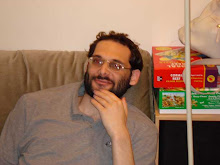This article, the subject matter of which I found out about long ago but never wrote about, is an interesting glimpse into the politics of daylight savings time.
The current law that determines the dates for daylight savings time in the US, (the new version of which-which calls for the start of DST for on the first Sunday in March-just had its first effect this weekend) was actually a compromise between the lobbies of the retail industry and the environmental groups on the one hand-who wanted more daylight savings time because it would allow retail shops to use less electricity for the purposes of lighting the shops-and the orthodox jewish and educational lobbies on the other hand (who wanted less daylight savings time).
The retail industry understands that people tend to go shopping in the afternoon after work, as opposed to the morning before work. Thats why shops often don't open till 9-but stay open late. If they stay open late but don't open early-then they would rather have the daylight be during that period-so they don't have to spend as much on lighting. The environmental groups are with them on this-since they want a reduction in electrical use as well.
The reason the orthodox jewish lobby wanted less daylight savings time was that, if the clocks flipped forward too early, sunrise wouldn't occur until nearly 800am some days in some localities-making it impossible to daven before you went to work.
According to Shulchan Arurh and Mishna Berurah you can daven before sunrise in certain extreme situations-but under no circumstances can you daven shacharit before 72 minutes before “dawn”. Whether “dawn” means 72 minutes exactly-or the time it takes the sun to move the same amount the sun moves in 72 minutes in Jerusalem at equinox-is subject to dispute). Its also disputed whether its better to daven before sunrise (but after "dawn"), but with a minyin, or better to go to work, and daven alone right before starting work (so as to daven after sunrise).
For example- in DC this year, sunrise was at 7 am eastern standard time on Feb 15. Had that been the first day of daylight savings, then sunrise would have been at 8am local time. Then, the first time you could have davened shacharit then, even under extreme circumstances, would be 6:48 am (according to the exactly 72 minutes before sunrise opinion.) If you were at minyin, by the time you finished davening and got your Tifillan off, if you have a 1 hr commute-you just might make it to work on time if work starts at 8:30-assuming no accidents or other traffic problems-which are of course guaranteed to happened from time to time.
Of course, with a really early daylight savings time switch, such as a switch in february, there would also be fewer days that had no problems at all- (says when you could daven with a minyin and after sunrise).
Now clearly its true that, had the law called for a daylight savings switch in February, there would be more days when there would be no possibility of davining a) with a minyin, and b) after sunrise and c) still making it to work. Indeed, this is unfortunate for orthodox jews...but were already some days like this even under the older systems,
As for the possibility of days when you cant even daven with a miniyin before the exigent circumstances "dawn" deadline, and still make it to work (which would have happened for the first time had the law called for a switch in February) - it should be noted that its not even clear whether davining before sunrise (but before "dawn") with a minyin (what you wouldnt be able to do some days if the switch occurred in February) is preferable to davining alone, but after sunrise. (i.e. alone in the office right before work starts).
Thus, even under a February switch, it wouldn't be that harmful to orthodox jews.
So for this and other reasons, when I first heard that the orthodox jewish lobby had influenced the law-I felt a little annoyed.
Though it obviously happens often in America regardless of the fairness, why should a small group, that made up an insignificant portion of the vote, have influenced such an important law effecting everyone? Just because its everyone else does it does that mean we should? I am a very big anti earmark spending person- and get annoyed by special interest projects and issues that run contrary to the benefit of the majority-how could I support the orthodox jewish position and not be a hypocrite?
Further, as someone who supports law that both simultaneously helps the economy and lessons dependence on foreign oil, (another very jewish issue) I supported an earlier start to daylight savings period to help save energy.
So its now interesting to see that not all non jewish people regular citizens love the fact that daylight savings time has gotten earlier in the year- see here (which also has an interesting sort of history of DST.)
Of course, to be fair, its not just the orthodox jewish lobby that prevented the DST from starting even earlier in the year then the new first Sunday in march rule.. The educational lobbies are also against an earlier in the year DST, since they were concerned by the fact that children would be waiting for the school bus in darkness if daylight savings was to early. This is of course also a legitimate concern.

3 comments:
IIRC, the so-called authoritative study of the energy savings effect of DST was done by US DOT back in the 1970s.
It probably is way past time for another authoritative study.
well-you'd think they would have done one BEFORE changing it..but whatever
now you know better
Post a Comment